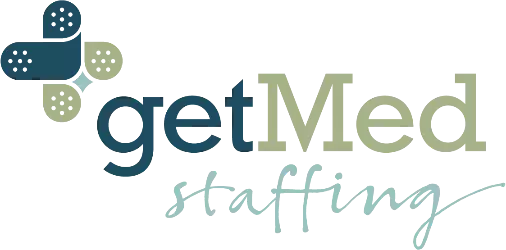
Mental Health Resilience Tools for Healthcare Pros
Healthcare is inherently a stressful job, and those who choose to enter the field must prove tenacity from day one. However, that doesn’t mean healthcare workers are superhuman, especially in the COVID era. Emotional fatigue, burnout, and traumas can permeate the strongest individuals. So, if you need quick, tangible peace of mind— look no further than your phone.
This might sound counterintuitive, but wellness and mindfulness apps are growing in popularity, helping many maintain healthy routines in chaotic times. Wellness apps can especially become vital for travel nurses who may be far away from their traditional support systems much of the year.
What it means to be resilient
Resilience is the ability to adapt to challenging situations. When stress, adversity, or trauma strikes, you can still experience the tolls both physically and emotionally, but you're able to keep functioning. While breathing exercises like the 4-7-8 method are excellent to have in the moment, it’s wise to diversify your methods to ensure endurance.
Think of it in terms of building muscle. Though bicep curls will target and strengthen your arms, it’s restricted to that one area, and when fatigued, your arms will naturally give out. Using other methods, like a weighted jump rope, will engage other muscles while achieving the same goal and boost overall endurance in the future. The same can be said for meditation, sleep tracking, and conscious continued self-care. Therefore, we have compiled a list of seven apps that can diversify and build mental resilience.
1. Headspace
Headspace is a meditation app that breaks down the basics into bite-sized sessions that track progress in a gamified way to keep users interested in keeping up the habit. Headspace offers a free 14-day trial with a subscription of $6 a month after.
2. Calm
Like Headspace, Calm is a meditation app. The difference is that, unlike Headspace, sessions are not guided and function more like a white noise machine, often utilizing nature sounds. Although the app offers more personalization for situational needs, it does come with a higher subscription cost of $14.99 a month after its seven-day trial.
3. Nursewell
Nursewell is a free app created specifically to help nurses and midwives practice self-care. It was developed by the Southeastern Sydney Local Health District in Australia, using a survey of practicing nurses to target their most pressing health issues. Nursewell is broken down into sections like “Better Sleep,” “Better Thinking,” and “Mindful Eating.” At the end of each section, users can complete a reflection and email it to themselves to track their progress and mark essential lessons learned during that section.
4. Sleep Cycle alarm clock
It’s no secret that healthcare professionals can work long hours. Lack of sleep has a lot of adverse effects on both mind and body, so to combat or at least track sleep habits, there are apps like the Sleep Cycle alarm clock. The app is an intelligent alarm clock that analyzes your sleep and wakes you in the lightest sleep phase – the natural way to wake up feeling rested and relaxed. It does cost after the one-week trial; however, at just $40 a year, it’s a big steal for some peace of mind and a little shuteye.
5. Sleepfullness
Sleepfullness is a more robust sleep tracker (and is offered for Android users). It’s a perfect companion for travel nurses whose schedules may change regularly. The app uses guided tracks to foster a sense of calm that will enable you to get a better night’s sleep. The tracks are divided into four “time zones” (Going to sleep, Can’t sleep, Waking up, and Daytime), making it a perfect companion for travel nurses whose schedules may change regularly. Sleepfullness is free, though premium options are available.
6. Mood Mission
For those who need some tricks of their sleeves (or in their pockets) but don’t want to commit to a subscription, Mood Mission could be a great fit for finding better ways of coping with stress and anxiety. Tell Mood Mission how you’re feeling, and it will give you a tailored list of 5 Missions that can help you feel better. Missions are quick, easily achievable, and backed up by scientific evidence, activities, and mental health strategies.
7. Noom Mood
The name Noom is often associated with weight loss. However, they are committed to healthy lifestyle changes in many areas. Noom Mood uses a similar approach to guiding individuals towards more personalized mental health practices based on their current behavior. This is, by far, the priciest on the list, coming in at $149 for four months, but the data shows that those willing to stick with the plan have seen significant long-term results.
Go forth and foster self-care
So often, health care workers are focused on being strong for other people— but you cannot forget to take care of yourselves. We hope you can nurse your own well-being with these tools, no matter what gets thrown at you. Remember, resilience is not simply about getting through something or being stoic – it’s being able to bounce back, restore, and adapt.
